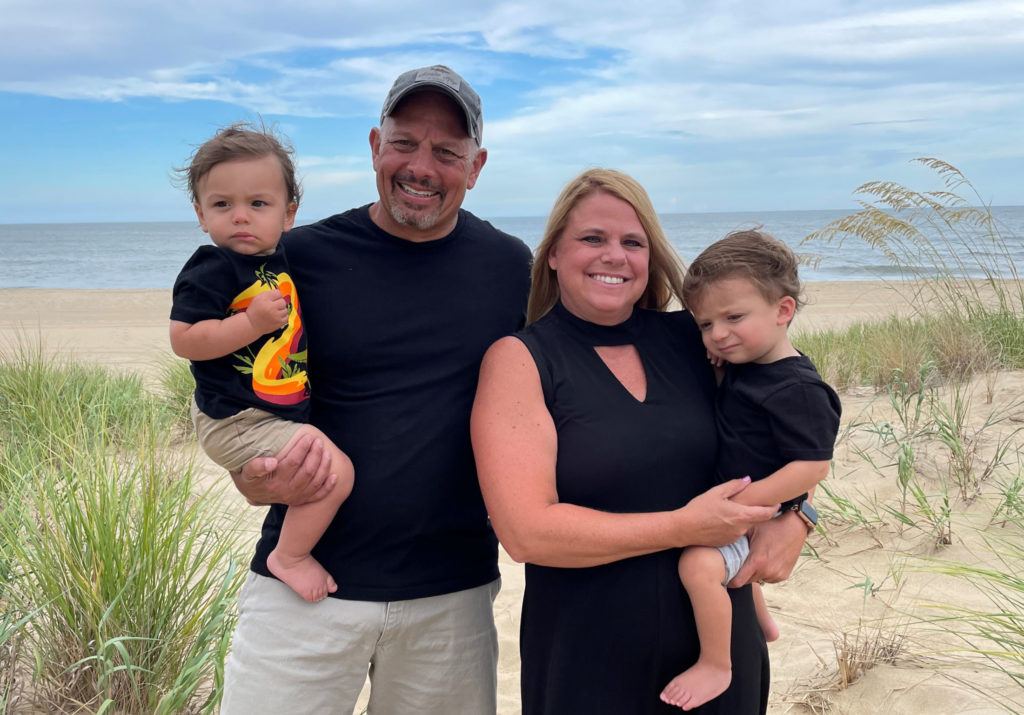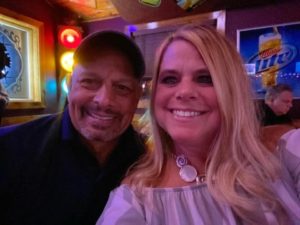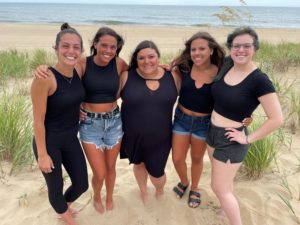
When Melissa, a mother of 5 daughters and grandmother of two, was 35 years old, she started getting annual mammograms. She has two high-risk factors for breast cancer: a family history and dense breast tissue. In 2017, her doctor recommended getting a mammogram followed by an MRI six months later.
The mammogram missed her breast cancer.
Six months later, the MRI found it…. EARLY.
Diagnosis and Treatment
I had my first baseline mammogram at age 35 due to my family history of breast cancer and my dense breast tissue. Both my grandma and my mom were treated for breast cancer. I routinely went for my mammograms yearly since the age of 35 until the age of 49 when I was diagnosed with stage 1A ER PR+ HER2 negative breast cancer. I periodically had to follow up with ultrasounds and diagnostic images. I had my normal mammogram in July of 2017 and the results came back without any signs of cancer. I had a genetics meeting with my mom and sister in October of 2017. Since insurance helped in the cost of genetic testing for my mom, she decided to get blood work done to check for the BRCA gene. Thankfully, she did not carry that gene that would increase the chance of passing it onto her children, however they did a report on me to include the statistics and outlook of the risk of breast cancer occurrence for me. My father also was diagnosed with prostate cancer the same year as my mother’s cancer diagnosis. I was at a higher risk and with my dense breast tissue and they recommended I get a yearly mammogram with an MRI 6 months later. I decided, along with my OB/GYN, to get my first MRI in January of 2018. That was 6 months after my “normal” mammogram. They saw something suspicious and recommended I get a biopsy. This had to be done with an MRI to direct it because they could not detect it with an ultrasound. My tumor was 6mm in size. This was so small it did NOT show up in my mammogram or ultrasound. They called me in on January 25, 2018 to give me the bad news.
I elected to have surgery and received a double mastectomy with reconstruction on March 22nd 2018. They tested the tissue and found no cancer in my sentinel node. So, no cancer had spread to my lymph nodes. I had my surgery and sought treatment at the Anne B. Barshinger Cancer Center. My nurse navigator, my surgeon, my husband, my mother, our 5 daughters and family and friends helped me through it all.
Through discussion with my oncologist, it was recommended to me to take Tamoxifen for 5 years and will reevaluate at year 5 to see if I should continue it for a few more years. I also had genetic testing and I have one gene, the RAD51D, gene that falls into the category of uncertain significance. It is on my file and I will be contacted if this gene is recategorized as pathogenetic. Not enough research has been done on this particular gene.
MRI Coverage

I did struggle to get my MRI covered by my insurance. I made lots of phone calls, gathered documentation and spent lots of time on the phone to plead my case. They initially declined coverage saying I didn’t have a diagnosis to warrant coverage. I sent them paper work showing my risk analysis and the recommendation from the genetics counselor. I told them that I was diagnosed with cancer by the MRI. This saved my life and in the long term the insurance company saved money because if we didn’t detect my cancer early, I would have been looking at a possible lifetime of treatments.
I truly believe in preventative care and early diagnostic testing saves lives. I am truly grateful that I made the decision to be proactive in my screening and follow up appointments and evaluating my risk of developing breast cancer. I only had a 2.6 percent chance of getting cancer in the upcoming 10 years and I actually got it. Knowledge is key.
Melissa’s advice for women facing breast cancer
When first diagnosed, I recommend finding a surgeon and support team you trust. Do your research. Seek other women that are BC survivors and ask questions! Listen to your doctors, take one step at a time and one appointment at a time. Take notes, read and explore all of your options for treatment. Get a second opinion if desired. Gather with a support group and take help when needed!

Finding a cure now… so our daughters don’t have to.
As a mother of 5 daughters and now 2 grandsons since my first diagnosis, I am passionate about sharing my story and keeping updated on the research and on the newest treatments for breast cancer. My girls will get early screening at the right time and praying for a cure! The time is NOW! I do not want to have to see any of my daughters go through what my side of women had to go through.
